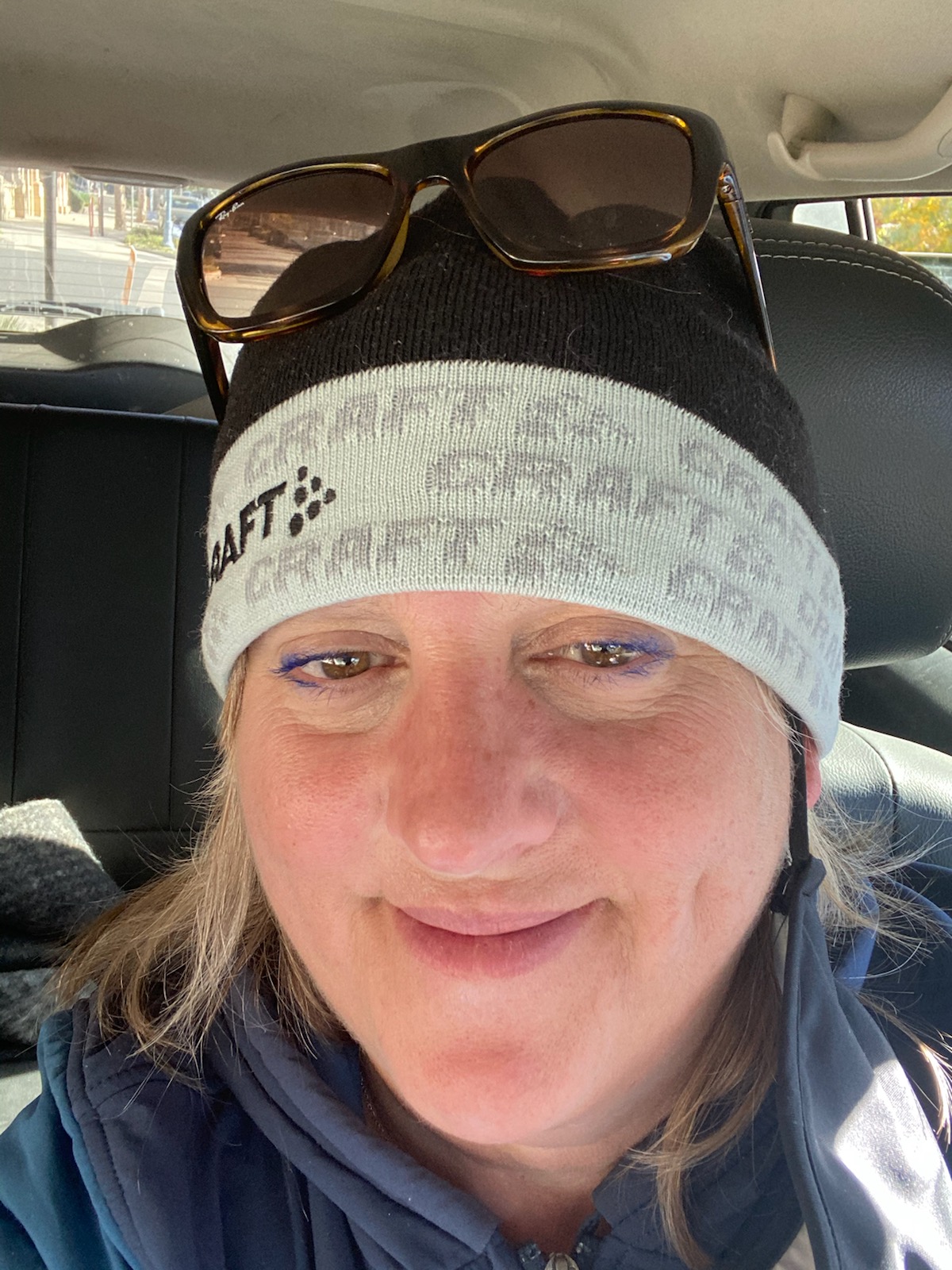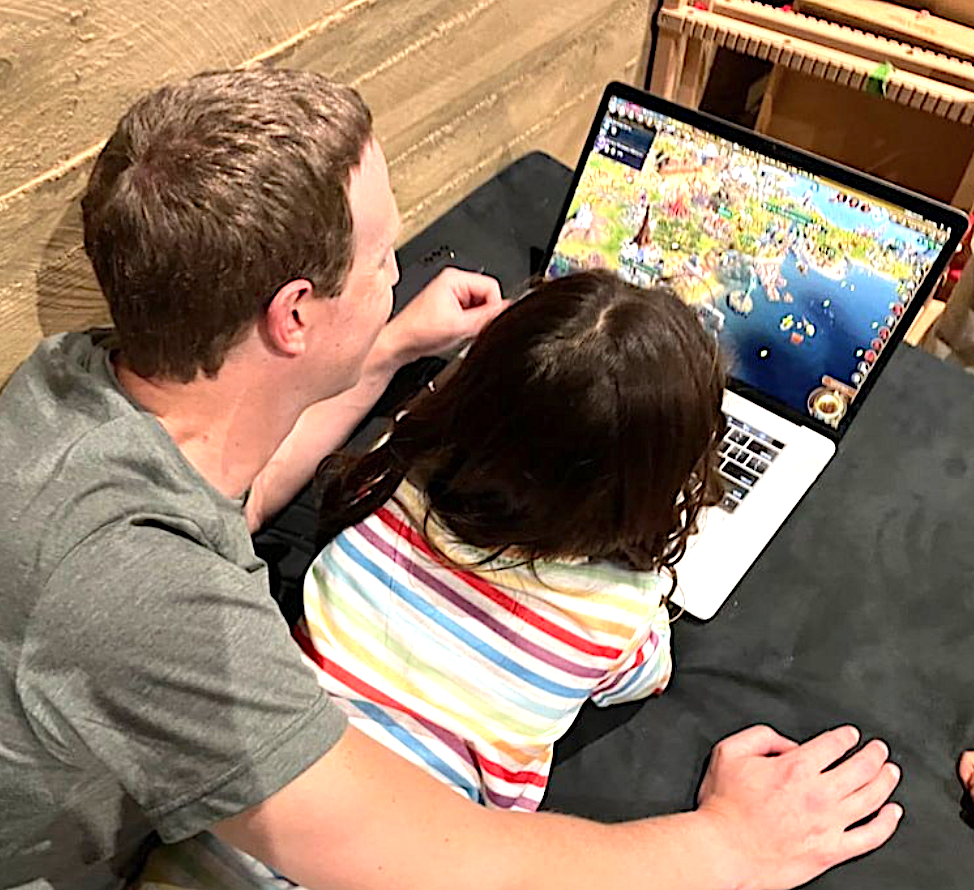Dad Mark Zuckerberg, Facebook founder, just posted a cute photo with his daughter Max as they delve into the #STEM world via games on a laptop. Max, five going on six years old, is sister to toddler August. “The Zuck,” as he is known in FB has some endearing words added, but he also acknowledges the goal is teaching a little bit of science and technology via the game they are playing. Here’s his post:
The reality that #STEM education is here to stay is a given, but the way for many parents who do not have a grasp like The Zuck of current developments can be made much easier with a few tips and links included here.
First, #STEM stands for Science, Technology, Engineering and Math. You almost wish it had a less intimidating acronym, because the buzzy words of new economy jobs can bog down the learning process for parents and children.
Speaking from experience here, my older son was on the laptop watching me code at home from age two. Now he programs in about 28 languages and has crushed it to the degree that it rocks me back in admiration.
He not only picked up more than you can imagine by watching me, but with some simple guidance, is now a Senior Engineer at one of the Big Four tech companies at 26. That is to say, these boys and girls will find their intuitive path into #STEM with just a little bit of daylight throw into the vast world of the “iinterwebs.”
Your kids should know who Linus Torvalds is, and how Linus became the eponymous creator of Linux, or open source, as we know it today. From his early experiments in coding, Linux has become an enterprise grade wonder tool with input crowdsourced from, yes, more genius coders or programmers from around the planet in realtime!
For parents with less of a handle on the acronym-strewn, niche jargon, world of coders, servers, and substacks, you can start with the 1800’s. Charles Babbage was an English polymath who came up with the first photo-computer (as the lore goes). The Computer History site will fill you in here.
When other parents ask me how my older kid skipped college and has a six-figure salary, my first piece of advice is this: money is not the metric to go by for anyone. However, that said, the salaries of the brave new world of coders are very generous because there are few US kids who can fill these slots. The Big Four and others must reply on imported talent with harder to get visas now.
Yet, we can change this by early hands-on “making and breaking stuff” in code. So don’t be intimidated by the slick talk of this subculture – before long you will know your bash from your GNU. Just remember people built this coded menagerie of executable commands. And they are funny too, having named Python, a mainstay coding language, after Monthy Python (the show, not the snake, in other words).
The go-to’s are easy to find. To begin with there are great sites for learning for free:
https://www.codecademy.com/
https://girlswhocode.com/
https://builtin.com/career-development/coding-bootcamp
My son found his path was through Google Code Jam. Google Code Jam is an annual coder fest with geniuses from around the world who compete in “The Olympics of Coding.” No American has ever won the competition, but it is an excellent metric for gauging your skills.
Now Google has expanded from Code Jam to include other competitions for grins:
https://codingcompetitions.withgoogle.com/
As a bonus, here is an interview from Screenmancer.tv with John Detheridge, an expert insider who has moderated Google’s prestigious Code Jam in the past.
Poke your head into this discussion, which may not make total sense to you before you understand the coding lingo, but will come in handy after you’ve had your own tutorial on clicking on the links included here.
Q: What about Google Search, how often is that algorithm updated?
John Detheridge: I don’t work on Search myself, likely 100’s of updates per year. A whole team is dedicated to just that.
Q: Language of choice?
John Detheridge: I use C++. When I was in school (laughs), I used Basic! Later I used some other things. At work and programming competitions, C++.
Q: What about C# (C Sharp)?
John Detheridge: I’ve never used C#. Microsoft developed it, some use it.
Q: Have you ever seen any languages that just blew you away, unique coder-generated ones?
John Detheridge: One of the interesting things is that we let people use whatever language they like (for Google Code Jam entrants). Very occasionally, in the early rounds, people use really esoteric languages – almost as joke – but it doesn’t work later when it gets harder. Some people will solve a problems in one of those languages. or every problem in a different language for fun. They are just having fun.
Q: Fun, that’s funny! How do you guys build these challenges – like the drummer one, somebody into bands?
John Detheridge: Anyone at google can volunteer to join the Code Jam team – often people are thinking about algorithms. Like ‘How would I answer this?’ Then it has to be right for the (contest). If it is difficult enough, but not difficult enough, then ‘oh this would make a good problem.’ We want the problems to be unique, not to be something they have seen over and over again. Again, easy enough so you can solve it within the context of a four-hour competition.
Q: Who solves them first, or do you reverse engineer them, put a question to an answer?
John Detheridge: Sometimes we’ll have an aglorithm that we already have – then change the program in that way.
Q: Do you think coding will ever been seen as a big sport worldwide?
John Detheridge: It’s a sensation already. Time will tell. There’s a lot of people interested in Computer Science, and people who are just enthusiasts in general, who think it is interesting. I don’t think it will be on ESPN any time soon…
Q: What do you do for hobbies, or are you always coding?
John Detheridge: Nothing out of the ordinary – spending time with friends, board games and computer games. I enter program competitions myself. There’s one called Top Coder, also IPSC (Internet Problem Solving Contest). We look at other competitions, and see how different they are. We wouldn’t want to be a lot easier, or so difficult that nobody can solve the problems. We have an idea of how it is out there.
Q: How about the difference in styles between Australian coders v US coders v Russian coders? Or, why are there so many high rankers from Belarus and Russian Federation?
John Detheridge: I can’t tell where someone is from – geographic region – just from reading their coding. That’s an open question. We have people entering, literally ten’s of thousands, from all over the world. So in the early stages, we have good coverage of most territories.
Q: Are there ever any straight up hackers with a digital red flag attached that you guys sweep up by accident?
John Detheridge: No. Nothing like that.
Q: Do you recommend entrants (and coders in general) be fluent in a few languages?
John Detheridge: I think it is okay to be familiar and comfortable with just one. And use that through the whole competition. Generally as a software engineer, it is a good to know a few for your real job in programming.
As summer begins for you and your family, this should jumpstart your #STEM odyssey.
Happy Coding!
# # #


